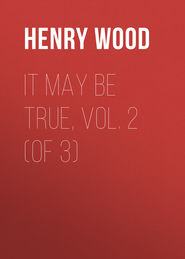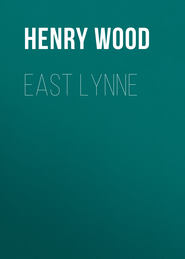По всем вопросам обращайтесь на: info@litportal.ru
(©) 2003-2024.
✖
Johnny Ludlow, Second Series
Настройки чтения
Размер шрифта
Высота строк
Поля
“Look here, we must hush this up,” cried the Squire, sinking his voice and glancing round the room. “I wouldn’t bring fresh pain on poor Rymer for the world. You must forget that you’ve told me, Johnny.”
“Yes, that I will.”
“It’s only a five-pound note, after all. And if it were fifty pounds, I wouldn’t stir in it. No, nor for five hundred; be hanged if I would! It’s not I that would bring the world about Thomas Rymer’s ears. I knew his father and respected him, Johnny; though his sermons were three-quarters of an hour long, sometimes; and I respect Thomas Rymer. You and I must keep this close. And I’ll make a journey to Timberdale when this snow-storm’s gone, Johnny, and frighten Jelf out of his life for propagating libellous tales.”
That’s where it ought to have ended. The worst is, “oughts” don’t go for much in the world; as perhaps every reader of this paper has learned to know.
When Lee appeared the next morning with the letters as usual, I went out to him. He dropped his voice to speak, as he put them in my hand.
“They say Benjamin Rymer is off, sir.”
“Off where?”
“Somewhere out of Timberdale.”
“Off for what?”
“I don’t know, sir. Jelf accused me of having carried tales there, and called me a jackass for my pains. He said that what he had told me wasn’t meant to be repeated again, and I ought not to have gone telling it about, especially to the Rymers themselves; that it might not be true–”
“As the Squire said yesterday, you know, Lee.”
“Yes, sir. I answered Jelf that it couldn’t have been me that had gone talking to the Rymers, for I had not as much as seen them. Any way, he said, somebody had, for they knew of it, and Benjamin had gone off in consequence. Jelf’s as cross over it as two sticks. It’s his own fault; why did he tell me what wasn’t true?”
Lee went off—looking cross also. After breakfast I related this to the Squire. He didn’t seem to like it, and walked about thinking.
“Johnny, I can’t stir in it, you see,” he said presently. “If it got abroad, people might talk about compromising a felony, and all that sort of rubbish: and I am a magistrate. You must go. See Rymer: and make him understand—without telling him in so many words, you know—that there’s nothing to fear from me, and he may call Ben back again. If the young man has begun to lead a new life, Heaven forbid that I, having sons myself, should be a stumbling-block in the way of it.”
It was striking twelve when I reached Timberdale. Margaret said her father was poorly, having gone out in the storm of the previous day and caught a chill. He was in the parlour alone, cowering over the fire. In the last few hours he seemed to have aged years. I shut the door.
“What has happened?” I whispered. “I have come on purpose to ask you.”
“That which I have been dreading all along,” he said in a quiet, hopeless tone. “Benjamin has run away. He got some information, it seems, from the landlord of the Plough and Harrow, and was off the next hour.”
“Well, now, the Squire sent me to you privately, Mr. Rymer, to say that Ben might come back again. He has nothing to fear.”
“The Squire knows it, then?”
“Yes. Lee came up about it yesterday: Jelf had talked to him. Mr. Todhetley did not believe a word of it: he blew up Lee like anything for listening to such a tale; he means to blow up Jelf for repeating anything said by a vagabond like Cotton. Lee came round to his way of thinking. Indeed there’s nothing to be afraid of. Jelf is eating his words. The Squire would not harm your son for the world.”
Rymer shook his head. He did not doubt the Squire’s friendly feeling, but thought it was out of his hands. He told me all he knew about it.
“Benjamin came to me yesterday morning in a great flurry, saying something was wrong, and he must absent himself. Was it about the bank-note, I asked—and it was the first time a syllable in regard to it had passed between us,” broke off Rymer. “Jelf had given him a friendly hint of what had dropped from the man Cotton—you were in the shop that first day when he came in, Mr. Johnny—and Benjamin was alarmed. Before I had time to collect my thoughts, or say further, he was gone.”
“Where is he?”
“I don’t know. I went round at once to Jelf, and the man told me all. Jelf knows the truth; that is quite clear. He says he has spoken only to Lee; is sorry now for having done that, and he will hush it up as far as he can.”
“Then it will be quite right, Mr. Rymer. Why should you be taking it in this way?”
“I am ill,” was all he answered. “I caught a chill going round to the Plough and Harrow. So far as mental illness goes, we may battle with it to the end, strength from above being given to us; but when it takes bodily form—why, there’s nothing for it but giving in.”
Even while we spoke, he was seized with what seemed to be an ague. Mrs. Rymer appeared with some scalding broth, and I said I would run for Darbyshire.
A few days went on, and then news came up to Crabb Cot that Mr. Rymer lay dying. Robert Ashton, riding back from the hunt in his scarlet coat and white cords on his fine grey horse (the whole a mass of splashes with the thaw) pulled up at the door to say How d’ye do? and mentioned it amidst other items. It was just a shock to the Squire, and nothing less.
“Goodness preserve us!—and all through that miserable five-pound note, Johnny!” he cried in a wild flurry. “Where’s my hat and top-coat?”
Away to Timberdale by the short cut through the Ravine, never heeding the ghost—although its traditional time of appearing, the dusk of evening, was drawing on—went the Squire. He thought Rymer must be ill through fear of him; and he accused me of having done my errand of peace badly.
It was quite true—Thomas Rymer lay dying. Darbyshire was coming out of the house as the Squire reached it, and said so. Instead of being sorry, he flew in a passion and attacked the doctor.
“Now look you here, Darbyshire—this won’t do. We can’t have people dying off like this for nothing. If you don’t cure him, you had better give up doctoring.”
“How d’you mean for nothing?” asked Darbyshire, who knew the Squire well.
“It can’t be for much: don’t be insolent. Because a man gets a bit of anxiety on his mind, is he to be let die?”
“I’ve heard nothing about anxiety,” said Darbyshire. “He caught a chill through going out that day of the snow-storm, and it settled on a vital part. That’s what ails him, Squire.”
“And you can’t cure the chill! Don’t tell me.”
“Before this time to-morrow, Thomas Rymer will be where there’s neither killing nor curing,” was the answer. “I told them yesterday to send for the son: but they don’t know where he is.”
The Squire made a rush through the shop and up to the bedroom, hardly saying, “With your leave,” or, “By your leave.” Thomas Rymer lay in bed at the far end; his white face whiter than the pillow; his eyes sunken; his hands plucking at the counterpane. Margaret left the room when the Squire went in. He gave one look; and knew that he saw death there.
“Rymer, I’d almost have given my own life to save you from this,” cried he, in the shock. “Oh, my goodness! what’s to be done?”
“I seem to have been waiting for it all along; to have seen the exposure coming,” said Thomas Rymer, his faint fingers resting in the Squire’s strong ones. “And now that it’s here, I can’t battle with it.”
“Now, Rymer, my poor fellow, couldn’t you—couldn’t you make a bit of an effort to live? To please me: I knew your father, mind. It can’t be right that you should die.”
“It must be right; perhaps it is well. I can truly say with old Jacob that few and evil have the days of my life been. Nothing but disappointment has been my lot here; struggle upon struggle, pain upon pain, sorrow upon sorrow. I think my merciful Father will remember it in the last great account.”
He died at five o’clock in the morning. Lee told us of it when he brought up the letters at breakfast-time. The Squire let fall his knife and fork.
“It’s a shame and a sin, though, Johnny, that sons should inflict this cruel sorrow upon their parents,” he said later. “Rymer has been brought down to the grave by his son before his hair was grey. I wonder how their accounts will stand at the great reckoning?”
III.
HESTER REED’S PILLS
We were at our other and chief home, Dyke Manor: and Tod and I were there for the short Easter holidays, which were shorter in those days than they are in these.
It was Easter Tuesday. The Squire had gone riding over to old Jacobson’s with Tod. I, having nothing else to do, got the mater to come with me for a practice on the church organ; and we were taking the round home again through the village, Church Dykely.
Easter was very late that year. It was getting towards the end of April: and to judge by the weather, it might have been the end of May, the days were so warm and glorious.
In passing the gate of George Reed’s cottage, Mrs. Todhetley stopped.











